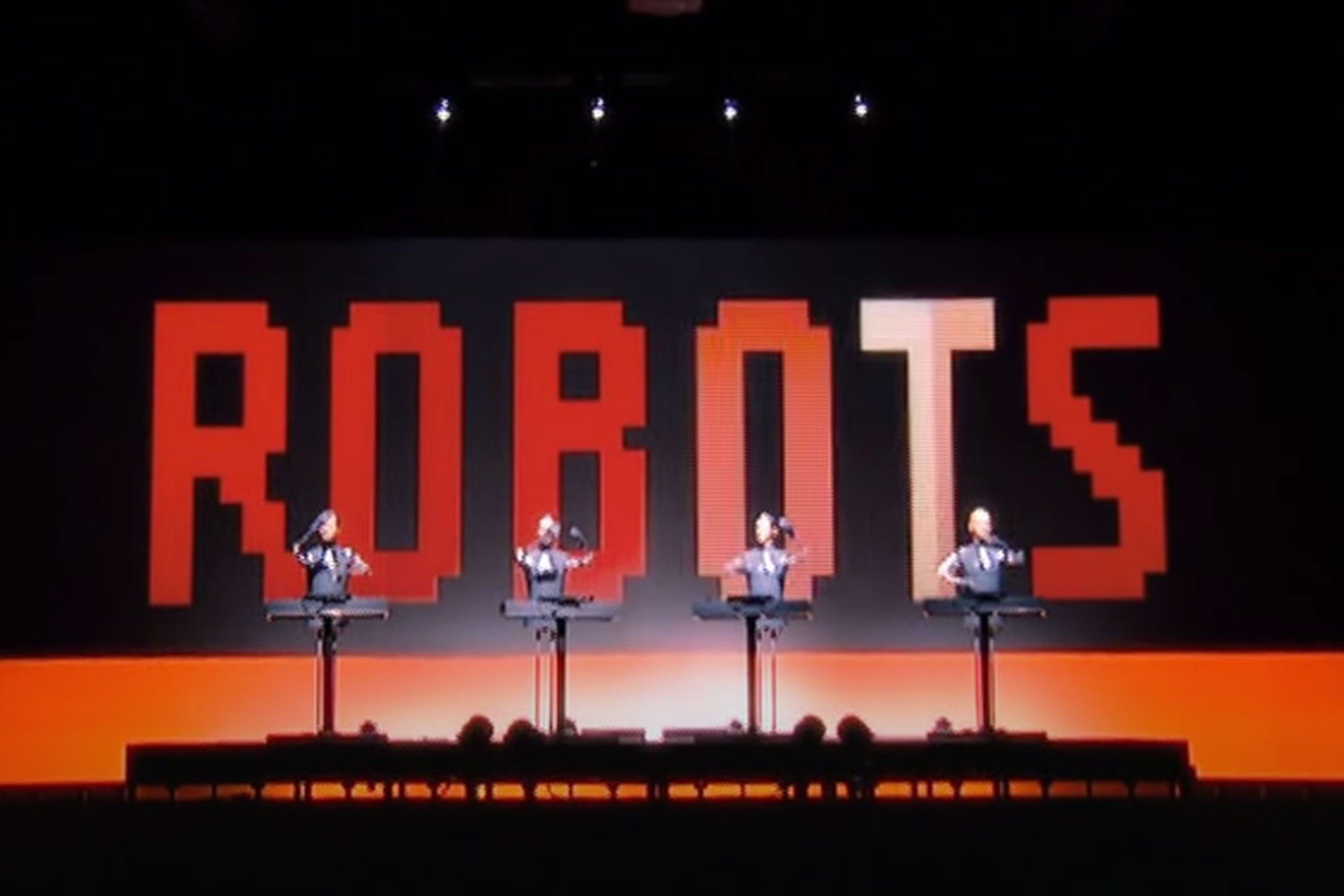 Artists
Artists
RIP Florian Schneider: Kraftwerk is perhaps electronic music's biggest influence
As part of the Düsseldorf-based group act Kraftwerk, Schneider helped reshape modern popular music
Florian Schneider’s untimely death at the age of 73 is the first uncontested proof that Kraftwerk were human after all. As part of the Düsseldorf-based group act Kraftwerk, Schneider helped reshape modern popular music in a such a way that one could argue that post-Beatles, they are its greatest influence. While their music played with the notion of man both at one with technology and subsumed by it, their music was nevertheless hypnotically humane and deeply soulful (although it always struck me as a knowing gag about German coldness than any essential truth about machinery).
Originally Hütter and Schneider played together in Organisation, a typically loose post-hippie concern that played improvisational music with a conga player who looked like he’d been tripping non-stop since 1967. Schneider bought his first synthesiser in 1970 (he was originally a flute player) and as Hütter and he gradually morphed into Kraftwerk Mk1, the electronic sound grew in importance until 1974’s breakthrough album, 'Autobahn', crossed over into international consciousness as well as the charts, making it into the top five of Billboard and the BBC charts (the title track was a novelty singles hit in May 1975).
Read this next: How the fall of the Berlin wall forged an anarchic techno scene
“I sat in seat Q36,” OMD’s Andy McCluskey said of Kraftwerk’s appearance at the Liverpool Empire in 1975. “And witnessed the first day of the rest of my life.” For a clique of electronic music fans, the album was the equivalent of seeing Elvis’s first TV appearance in in 1956. Their reach was such that David Bowie named one of the songs on 1977 album 'Heroes', ‘V-2 Schneider’, in obvious recognition of the effect they’d had on his music.
If we were only to consider Kraftwerk’s artistic output from 'Autobahn' through to 'Electric Cafe', we would still be talking about an act of major importance, but their influence stretches way beyond this cluster of six albums, into the New Romantic movement (and influential DJs like Rusty Egan, an early supporter), electro, house, techno and onwards into a popular music universe in which almost everything is now touched by electronic technology.
Despite their apparently stiff-limbed approach to the music, they found fans in the unlikeliest of places, none more than the hero worship among African-American youth of various stripes. One of the band’s earliest champions in the black community was a DJ from the south Bronx called Afrika Bambaataa, “I thought it was some weird shit; some funky mechanical crazy shit and more and more as I kept listening to it, I said, ‘They some funky white guys! Where they from?’” Bambaataa, along with John Robie and Arthur Baker, were instrumental in plotting a course that took Kraftwerk out of Düsseldorf and onto the parks and clubs of the inner city. ‘Planet Rock’, modelled on ‘Numbers’ and ‘Trans Europe Express’, drove a Hummer through traditional r'n'b sounds which confounded critics and old-fashioned DJs. “Chris [Hill] was like, ‘Oh fucking hell here they are with that old racket,” said Pete Tong. “And when house music came along that was the last straw.”
Kraftwerk’s music was championed by the Electrfyin’ Mojo in Detroit, who brought the Germans into the homes of techno pioneers Juan Atkins and Derrick May. “He broke 'Was (Not Was)'; he broke Prince,” says producer Don Was. “And he broke Kraftwerk as dance music. He opened up a whole new mindset for r'n'b listeners.” A few years later when Juan Atkins’ first techno records were emerging, the parallels were immediate and obvious, recalls Jeff Mills: “It was incredible. The only thing we had to compare it with was Kraftwerk.”
Read this next: The best pre 90s EBM and New Beat tracks
Schneider officially left Kraftwerk at the start of 2009, although by then they’d long since ceased to function as a creatively progressive act, although they – if you can describe lone remaining member Ralph Hütter as they – have been touring semi-regularly since then.
“Looking at their whole attitude, years later, with everything from websites to samplers, to the fucking Powerbook, all this shit connects to Kraftwerk,” says hip hop pioneer Fab Five Freddy. “Just think of everything that you can connect back to them. Like hearing those sounds; how they were so new to hear in the beginning.” Kraftwerk’s contribution to electronic music is colossal, perhaps its greatest influence. And while their creative output has been dimmed for over 30 years, without Schneider, Hütter and their former bandmates, electronic dance music would sound very different indeed.
Read this next: Get the best of Mixmag direct to your Facebook DMs


